Share
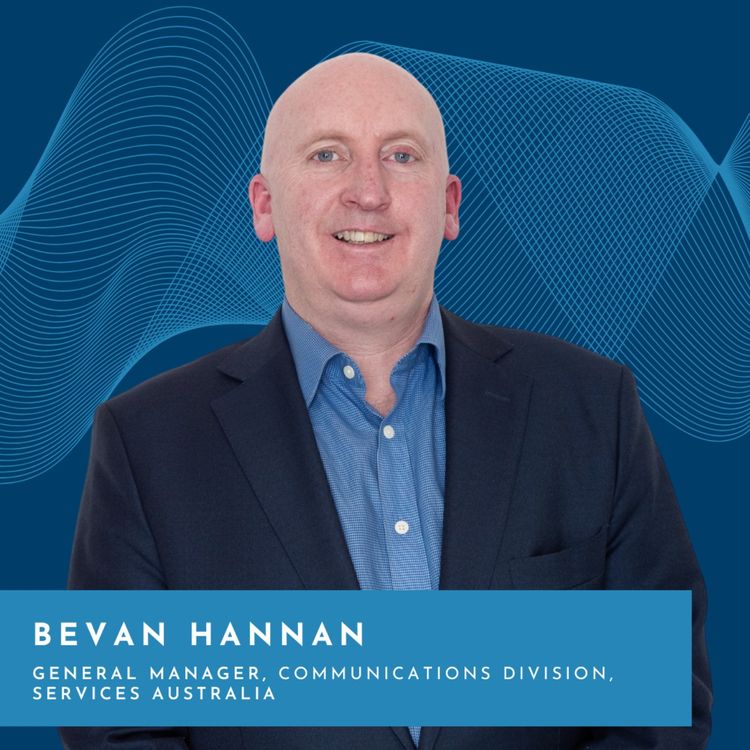
GovComms: The Future of Government Communication
EP#154: Part 1 - Building Relationships, Government Spokespersons and Pandemic Response
In this episode of the GovComms Podcast, we are joined by Bevan Hannan, General Manager of the Communications Division at Services Australia.
Bevan shares insights into the nuances of crisis communication during the COVID-19 pandemic, and outlines the strategies and technologies employed by Services Australia to manage public information needs effectively.
Bevan also discusses the challenges and strategies of maintaining team dynamics in a remote and hybrid work settings, and emphasises the importance of a supportive and collaborative culture. He highlights how his team adapted to ensure productivity and engagement despite the distance.
Furthermore, Bevan explores the significant role of government spokespeople in delivering complex information to the public. He stresses the importance of trusted, non-political figures in building public trust and ensuring clear communication from the government.
Discussed in this episode:
- Impact of mentorship and networking in Bevan's early career development.
- Bevan's lessons from transitioning from sports journalism to the public service.
- Balancing between in-person and remote work for team effectiveness.
- Evolution of government communication practices pre and post-COVID.
More episodes
View all episodes
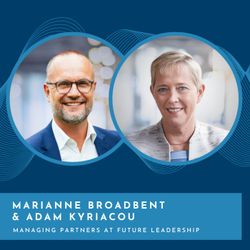
187. EP#187: Leading Through Uncertainty
59:03||Season 1, Ep. 187In an era of constant disruption, government communicators are being asked to lead without all the answers.In this episode of GovComms, David Pembroke is joined by leadership experts Dr Marianne Broadbent and Adam Kyriacou to explore how communications teams can navigate AI and rising expectations, whilst building trust and impact.It’s an insightful discussion revealing why comms professionals are no longer at the ‘end of the line’, but rather central figures in enterprise performance.Join David, Marianne and Adam as they pull back the curtain on how to lead in the face of transformation.Discussed in this EpisodeHow to integrate AI responsibly while maintaining a human-centred approachWhy trust, purpose, and psychological safety are now core leadership capabilities in the public sectorPractical ways comms teams can support senior leaders and build public trust
186. EP#186: Stop talking, start listening — the secret to better government communication
46:29||Season 1, Ep. 186What if better communication starts with listening, not telling?In this episode of GovComms, host David Pembroke speaks with Natasha Plowman: a communications strategist, advisor, and founder of Spinning Red. Together they explore how listening, empathy, and authentic storytelling can transform the way governments engage citizens.From unpacking the ineffectiveness of the old ‘broadcast’ model to examining the use of buzzwords in sustainability conversations, Natasha urges listeners to imbue their stories with honesty, empathy, and curiosity.In a world where government communicators are facing rapid transformation, this episode offers a timely reminder. Meaningful change begins with understanding your audience — not just speaking louder.DISCUSSED IN THIS EPISODEHow listening creates more effective and trusted communicationWays to communicate across five generations in the workplaceHow storytelling connects people and drives understandingWhy transparency builds credibility during complex changeHow curiosity and self-awareness improve leadership communicationSHOW NOTESSpinning Red | Natasha PlowmanBreak the Silence Collective | Natasha PlowmanEmily’s List | Emily’s List AustraliaHigher Ground | Alison TaylorBlog | GovComms Podcast LinkedIn | GovComms
185. EP#185: Authentic storytelling: building trust when it matters most
52:41||Season 1, Ep. 185What happens when authenticity becomes your greatest communication strategy?In this episode of GovComms, host David Pembroke speaks with Oluchi Ezeugo, a leading corporate communications professional from Lagos, Nigeria, who’s helped organisations across Africa navigate change, crisis, and culture.Oluchi reveals how authentic storytelling transforms workplaces — building trust, inspiring teams, and connecting people to purpose. From guiding leaders through tough moments to rebuilding confidence after crisis, she shares practical lessons every communicator can use.For public sector and government professionals, this episode is a masterclass in real, human communication — showing that when you lead with honesty and empathy, trust follows.Discussed in this episode:Discover why authentic storytelling is the foundation of trustLearn how to communicate change with empathy and clarityExplore the power of internal comms to shape cultureHear how great leaders build psychologically safe teamsUnderstand how to rebuild confidence after professional setbacksHow AI and social media are reshaping communicationShow notes:Blog | GovComms PodcastLinkedIn | GovComms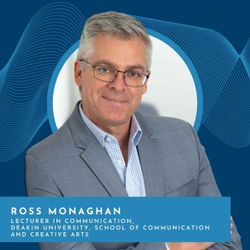
184. EP#184: Communicators in the driver’s seat: Leading with AI and trust
44:18||Season 1, Ep. 184What does it take to thrive as a communicator in a rapidly changing world?In this episode of GovComms, David Pembroke speaks with Ross Monaghan, award-winning educator and communications leader from Deakin University. From his early days as a teenage journalist in Warrnambool to senior roles at Optus and the Australian Mobile Telecommunications Association, Ross has seen the profession evolve from every angle.Ross shares why persistence and curiosity matter, how communicators can show leadership at any stage of their career, and why “dreaming big” is vital. He also unpacks the opportunities and risks of artificial intelligence, urging communicators to take the lead on its ethical use.Discussed in this episode:Lessons from Ross’s early career in journalism and industry.Building confidence to chase opportunities others might not.Why leadership is about action, not job titles.Creating stronger workplace culture through human connection.Open, honest communication as a tool for solving conflict.The communicator’s role in guiding ethical AI adoption.Show notes:International Association of Business Communicators | IABCPanuara South community benefits from new Optus mobile tower | OPTUSAI Workshops | Ross MonaghanHypeCloudAI podcast | Ross MonaghanRoss Monaghan | LinkedInBlog | GovComms PodcastLinkedIn | GovComms
183. EP#183: Context is key: Behavioural science in Government communication
39:57||Season 1, Ep. 183What if everything you thought you knew about effective communication was wrong?In this episode, host David Pembroke speaks with James Healy, founder of The Behaviour Boutique and co-author of BS at Work. James has worked in more than 60 countries and brings deep insights from behavioural science, anthropology, and psychology to the challenges facing modern organisations and governments.James unpacks why so much of work is “BS” and why policies often fail to change behaviour. He shows how context shapes decisions, why storytelling matters, and shares the simple EAST framework to help communicators cut through.Discussed in this episode:James’s path from economics to behavioural scienceLessons from the global financial crisisWhy massive handbooks never change behaviourHow culture and incentives drive decisionsWhere governments use behavioural science wellQuick wins for communicators on timing and deliveryShow notes:BS at Work: Why So Much of Modern Work is BS and How Behavioural Science Can Make It Better | James HealyThe Behaviour BoutiqueAdopting AI: The People First Approach | James Healy, Paul GibbonsThe EAST framework | The Decision LabJames Healy | LinkedInThe B Word | Podcast by James HealyBehavioural Science | OECD ReportBlog | GovComms PodcastLinkedIn | GovComms
182. EP#182: From crisis to TikTok: Rethinking Government comms
01:00:43||Season 1, Ep. 182What do bushfires, TikTok, and police comms have in common?For Kendall Masters, they’ve each shaped a sharp, no-nonsense approach to government communication.In this episode, she joins David Pembroke to unpack what it really takes to build trust, cut through the noise, and connect with the public — especially when time and attention are in short supply.Kendall shares lessons in agility, authenticity, and strategic clarity, from rolling out TikTok with Victoria Police to managing emergency comms during the 2019–20 bushfires and COVID-19. They explore the limits of video, the myth of reach-for-the-sake-of-it, and why good reporting is about more than numbers — it’s about telling the right story to the right people.Discussed in this episode:Moving from traditional media to digital-first commsLessons from bushfire and COVID-19 emergency responseWhen video works — and when it doesn’tLaunching TikTok with Victoria PoliceDitching vanity metrics for meaningful reportingBuilding skilled, strategic comms teamsShow notes:TikTok | Victoria PoliceBlog | GovComms PodcastLinkedIn | GovComms
181. EP#181: Beyond the brand: Building trust in local government comms
37:28||Season 1, Ep. 181Is your comms team keeping up, or just keeping busy?In this episode of GovComms, David Pembroke sits down with Mitchell Dye, the dynamic voice behind the City of Greater Geelong’s external communications. From community radio to leading digital strategy, Mitchell shares a front-row view of how local government is reinventing the way it engages with citizens—one authentic story at a time.David and Mitchell unpack what it takes to stand out in the crowded digital landscape, why the best communicators aren’t always in the comms team, and how to build trust through relatable, local voices. With fresh insights from years of hands-on experience, Mitchell offers a practical roadmap for future-proofing local government communication.Discussed in this episode:Reinventing comms in local governmentAuthentic storytelling vs polished brandingWhat community radio taught Mitchell about public commsFinding trusted voices beyond the comms teamManaging 24/7 comms without burning outShow notes:Planner | Microsoft94.7 The Pulse | Geelong Community RadioBlog | GovComms Podcast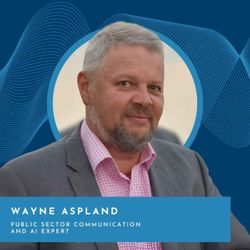
180. EP#180: How AI is changing Government comms (and what to do about it)
34:51||Season 1, Ep. 180How will AI reshape the future of government communications—and what skills will you need to thrive?In this episode of GovComms, host David Pembroke is joined by Wayne Aspland, expert in public sector communication and AI strategy, to explore how artificial intelligence is transforming the role of communicators today and into 2030.Wayne shares how government teams can build AI capability, drive strategic alignment, and stay trusted in an era of rapid technological change. He also explains why human creativity, leadership, and critical thinking will be even more essential as automation accelerates.Discussed in this episode:How AI is reshaping communication rolesAchieving alignment across complex teamsBuilding AI skills as a teamManaging AI risks with clear guardrailsShow notes:Day in the life of a comms person in 2030 | Wayne AsplandState of the Sector report | GallagherBlog | GovComms Podcast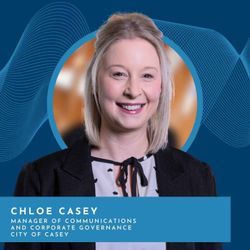
179. EP#179: Calm in crisis: Rebuilding trust through communication
37:08||Season 1, Ep. 179What happens when your council loses public trust—and you’re the one answering the questions?In this episode of GovComms, host David Pembroke speaks with Chloe Casey, Manager of Communications and Corporate Governance at the City of Casey, about leading through the fallout of the Operation Sandon investigation.Chloe shares how her team managed misinformation, community confusion, and the absence of elected councillors for almost five years, all while ensuring communications remained clear, composed, and responsive.She also reveals how they’re using AI, short-form video, and cold outreach to connect with the City of Casey, home to one of Australia’s most culturally and linguistically diverse communities. Her insights offer practical guidance for any government communicator navigating through change.Discussed in this episode:Leading through crisis with clarity and speedCombining comms and governance for stronger responsesEngaging CALD communities with targeted outreachUsing AI, video, and plain English to boost impactShow notes:Brolly | Social Media ManagementBlog | GovComms Podcast